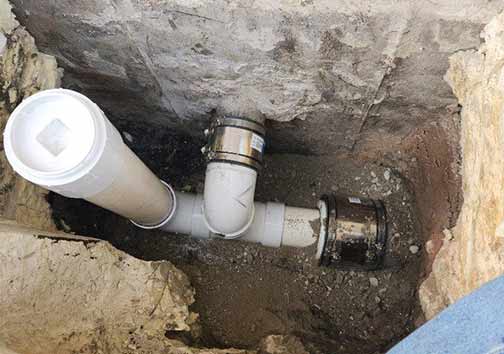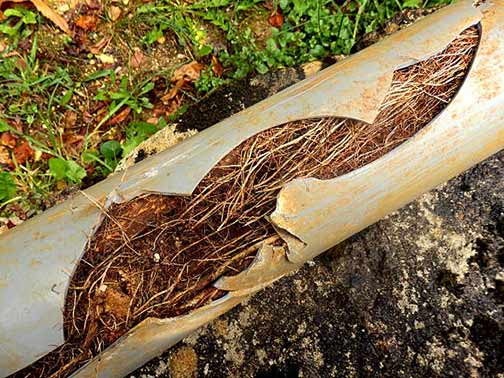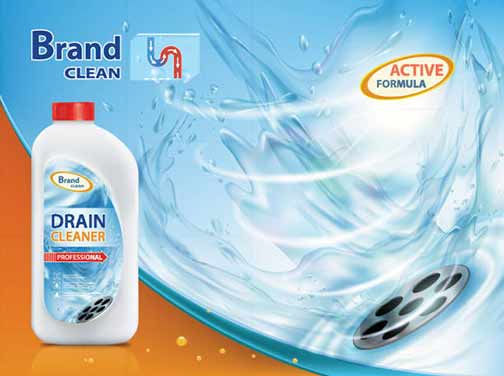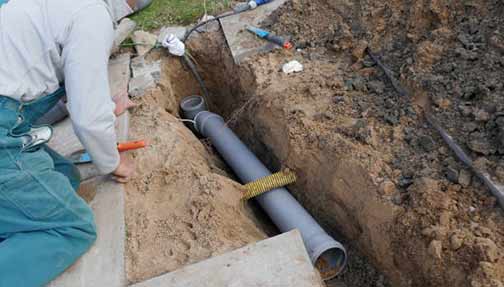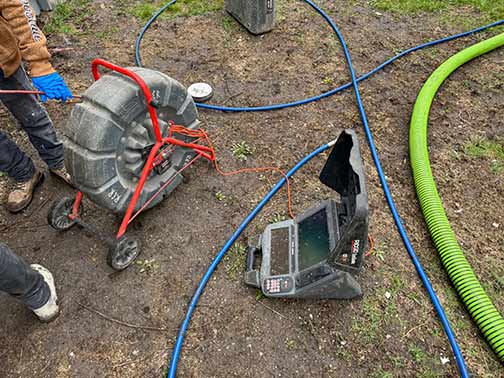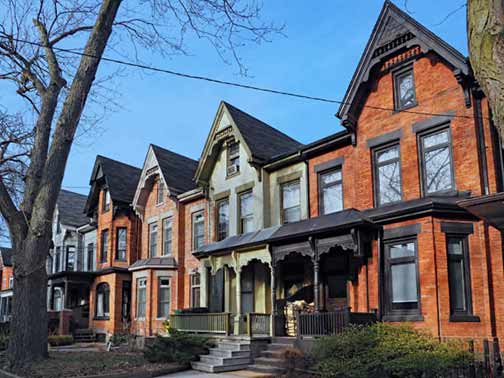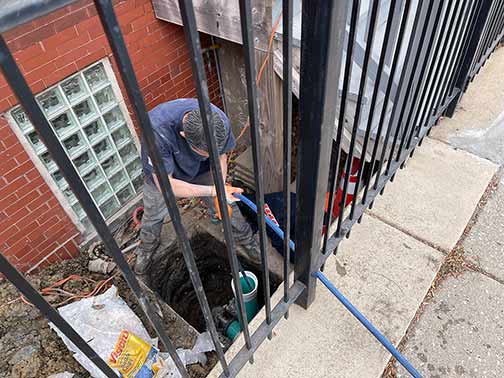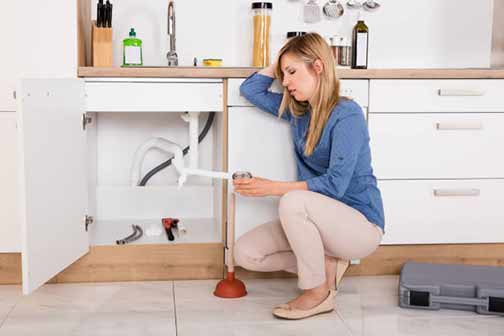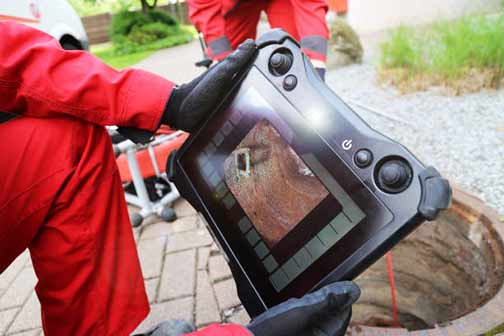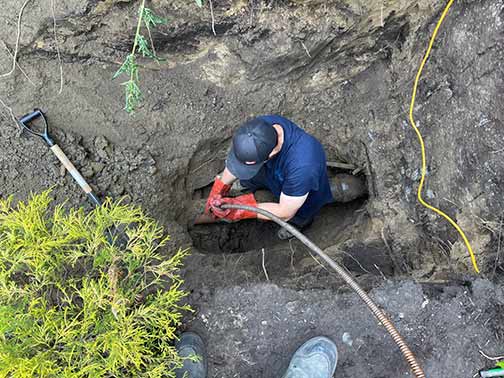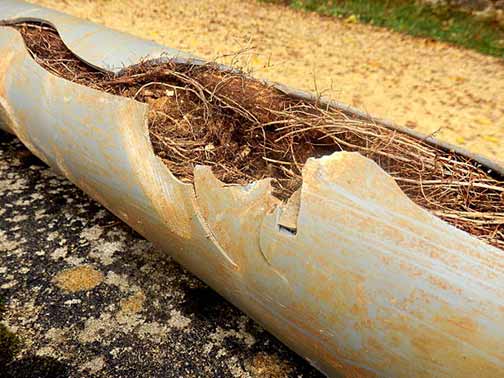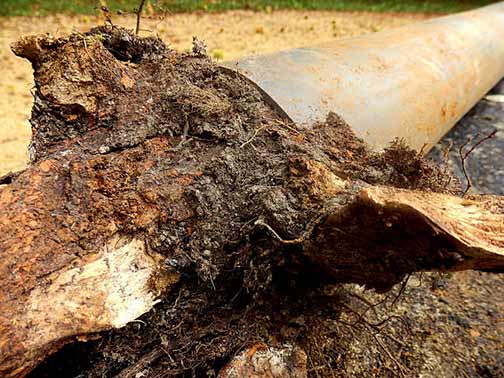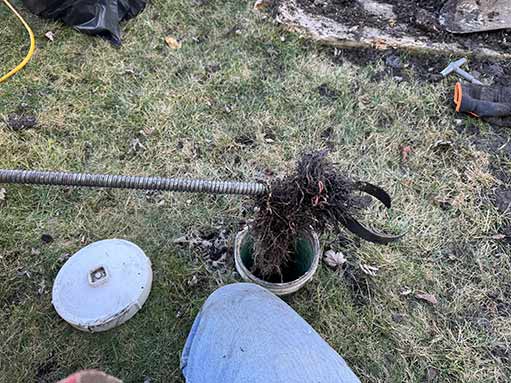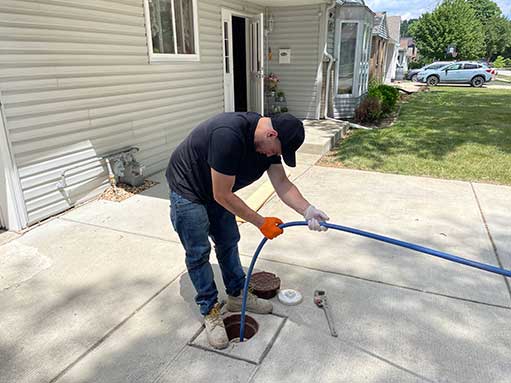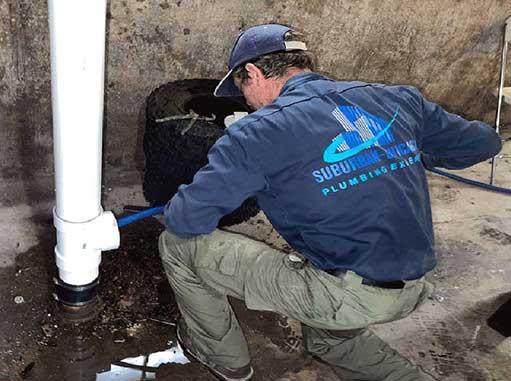Maintaining your Chicago home’s sewer system is crucial for protecting your investment and ensuring the reliability of your plumbing infrastructure. A well-maintained sewer system prevents costly repairs, health hazards, and environmental damage.
Regular sewer system maintenance helps to avoid unexpected and expensive repairs. By keeping the system in good working condition, homeowners can prevent small issues from becoming major problems. Additionally, a properly functioning sewer system ensures that waste is effectively removed from your home, reducing the risk of health hazards such as exposure to harmful bacteria and viruses.
Environmental protection is another significant benefit of sewer system maintenance. Properly maintained systems reduce the likelihood of sewage leaks and spills, which can contaminate local water sources and harm wildlife. By taking care of your sewer system, you are contributing to a cleaner and healthier environment for your community.
Identifying Common Sewer System Issues in Chicago Homes
Before diving into maintenance tips, it’s important to recognize common sewer system issues that homeowners in Chicago might face. These include blockages, leaks, tree root intrusion, and pipe corrosion. Understanding these problems can help you take proactive measures to prevent them.
Blockages are a frequent issue in sewer systems and can be caused by a variety of factors, including the buildup of grease, hair, and other debris. Leaks can occur due to cracks or breaks in the pipes, often resulting from age or ground movement. Tree root intrusion is a common problem in Chicago, where roots can infiltrate sewer lines and cause blockages or damage. Pipe corrosion is another issue that can affect older homes, leading to weakened pipes and potential leaks.
Regular Inspections: A Key to Preventive Maintenance for Sewer Systems
Regular inspections are a cornerstone of effective sewer system maintenance. By scheduling annual or bi-annual inspections with a professional plumber, you can identify potential issues before they escalate. Inspections typically involve using specialized cameras to examine the interior of the sewer pipes, checking for blockages, cracks, and other signs of wear and tear.
During an inspection, a professional plumber can also assess the overall condition of your sewer system and recommend any necessary repairs or maintenance. This proactive approach helps to ensure that your sewer system remains in good working order and reduces the likelihood of unexpected problems.
Proper Waste Disposal Practices to Maintain Your Sewer System
One of the simplest yet most effective ways to maintain your sewer system is by practicing proper waste disposal. Avoid flushing non-biodegradable items, grease, and other harmful substances down the drain. Educate your household on what can and cannot be disposed of in the sewer system to prevent blockages and damage.
Common items that should never be flushed or poured down the drain include baby wipes, feminine hygiene products, paper towels, and cooking grease. These items can cause blockages and damage to your sewer system, leading to costly repairs. Instead, dispose of these items in the trash and use a grease container for cooking fats.

If you suspect tree root intrusion, contact a professional plumber who can use hydro jetting to remove the tree roots and repair any damage.
Addressing Tree Root Intrusion in Chicago Homes
Tree roots can cause significant damage to sewer pipes by infiltrating and blocking them. To prevent this, consider planting trees and shrubs away from your sewer lines. If you suspect tree root intrusion, contact a professional plumber who can use hydro jetting to remove the tree roots and repair any damage.
In addition to planting trees away from sewer lines, you can also use root barriers to prevent roots from reaching your pipes. These barriers are typically made of metal or plastic and are installed underground to create a physical barrier between the roots and the sewer lines. Regular inspections can also help to identify any potential root intrusion issues before they become major problems.
Using Enzyme-Based Cleaners for Sewer System Maintenance
Enzyme-based cleaners are a safe and effective way to maintain your sewer system. These cleaners use natural enzymes to break down organic matter, preventing build-up and blockages. Regular use of enzyme-based cleaners can keep your pipes clear without causing damage to the plumbing system.
Enzyme-based cleaners are an environmentally friendly option for maintaining your sewer system, as they do not contain harsh chemicals that can harm your pipes or the environment. To use these cleaners, simply follow the manufacturer’s instructions and apply them regularly to keep your sewer system in optimal condition.
Installing a Backflow Valve to Prevent Sewer Backups
In areas prone to heavy rainfall and flooding, installing a backflow valve can protect your home from sewer backups. This valve prevents sewage from flowing back into your home during periods of high water levels. Speak with a professional plumber to determine if a backflow valve is suitable for your property.
Backflow valves are particularly important for homes in low-lying areas or those with basements, as these locations are more susceptible to sewer backups. By installing a backflow valve, you can prevent costly damage to your home and reduce the risk of exposure to harmful sewage.
Maintaining Your Home’s Sump Pump for Effective Sewer System Function
If your Chicago home has a sump pump, regular maintenance is essential to ensure it functions properly. Check the pump periodically for debris and test it to make sure it activates and pumps water efficiently. A well-maintained sump pump can prevent basement flooding and sewer backups.
To maintain your sump pump, start by inspecting the pump and the surrounding area for any debris or obstructions. Clean the pump and the sump pit to ensure that water can flow freely. Test the pump by pouring water into the pit and observing whether the pump activates and removes the water efficiently. If you notice any issues, contact a professional plumber for assistance.

A well-maintained sump pump can prevent basement flooding and sewer backups.
Dealing with Sewer Line Leaks in Chicago Homes
Sewer line leaks can lead to serious damage if not addressed promptly. Signs of a leak include foul odors, slow drains, and unusually green patches of grass in your yard. If you suspect a leak, contact a professional plumber immediately to assess and repair the issue.
In addition to the visible signs of a leak, you may also notice an increase in your water bill or the presence of mold and mildew in your home. These issues can indicate a hidden leak that requires immediate attention. A professional plumber can use specialized equipment to locate and repair the leak, preventing further damage to your home and sewer system.
Implementing a Sewer Maintenance Schedule for Chicago Homes
Creating and following a sewer maintenance schedule can help you stay on top of necessary tasks and prevent issues from arising. Include regular inspections, enzyme-based cleaner applications, and sump pump checks in your schedule. Consistency is key to maintaining a reliable sewer system.
To create a maintenance schedule, start by listing all the tasks that need to be completed, such as inspections, cleaning, and testing your sump pump. Determine the frequency for each task and set reminders to ensure that you stay on track. By consistently following your maintenance schedule, you can keep your sewer system in optimal condition and avoid unexpected problems.
Understanding the Role of Professional Plumbers in Sewer System Maintenance
While some maintenance tasks can be handled by homeowners, others require the expertise of professional plumbers. Understanding when to call in a professional can save you time, money, and stress. Professional plumbers have the tools and knowledge to address complex issues and ensure your sewer system remains in optimal condition.
Professional plumbers can perform thorough inspections, identify and repair leaks, remove tree roots from sewer lines, and install backflow valves, among other tasks. By working with a professional, you can ensure that your sewer system is properly maintained and any issues are addressed promptly and effectively.
Cost-Effective Maintenance Strategies for Chicago Sewer Systems
Maintaining your sewer system doesn’t have to be expensive. By adopting cost-effective strategies, you can keep your system in good shape without breaking the bank. This includes regular inspections, proper waste disposal, and using enzyme-based cleaners. Investing in preventive measures can save you from costly repairs in the long run.
In addition to these strategies, consider performing some maintenance tasks yourself, such as cleaning your sump pump and applying enzyme-based cleaners. By taking a proactive approach to maintenance, you can reduce the need for expensive repairs and extend the lifespan of your sewer system.

By adopting cost-effective strategies, you can keep your system in good shape without breaking the bank.
Environmental Benefits of Sewer System Maintenance in Chicago
Proper sewer system maintenance not only protects your home but also benefits the environment. Preventing leaks and blockages reduces the risk of contaminating local water sources and minimizes the environmental impact of sewage spills. By maintaining your sewer system, you contribute to a healthier and cleaner community.
Maintaining your sewer system also helps to conserve water by preventing leaks and ensuring that your plumbing system operates efficiently. This can reduce your overall water usage and lower your utility bills, while also benefiting the environment.
Emergency Preparedness and Response for Sewer System Issues in Chicago
Despite your best efforts, sewer emergencies can still occur. Having a plan in place for emergency situations can minimize damage and stress. Know the location of your main sewer cleanout, keep emergency contact numbers handy, and educate your household on how to respond to sewer-related emergencies.
In the event of a sewer emergency, such as a backup or major leak, it is important to act quickly to minimize damage. Turn off the water supply to your home, if possible, and contact a professional plumber for assistance. Having a plan in place can help you to respond effectively and reduce the impact of the emergency on your home and family.
Investing in Sewer System Upgrades for Chicago Homes
As your home ages, investing in sewer line upgrades can improve reliability and efficiency. Upgrading old pipes, installing modern fixtures, and incorporating advanced technologies can extend the lifespan of your sewer system and enhance its performance. Consult with a professional plumber to explore upgrade options suitable for your home.
Some common upgrades for sewer systems include replacing old, corroded pipes with new, durable materials, installing energy-efficient fixtures, and incorporating smart technologies that can monitor and manage your plumbing system. These upgrades can help to improve the overall performance and reliability of your sewer system, while also reducing your environmental impact.
Conclusion: Protecting Your Investment Through Sewer System Maintenance
Maintaining your Chicago home’s sewer system is a critical aspect of homeownership. By following expert advice and implementing regular maintenance practices, you can protect your investment, ensure system reliability, and contribute to a healthier environment. Stay proactive, informed, and diligent in your efforts to keep your sewer system in optimal condition.
By taking a proactive approach to sewer system maintenance, you can avoid costly repairs, protect your home and family, and contribute to a cleaner and healthier community. Regular inspections, proper waste disposal, and investing in preventive measures are all key components of effective sewer system maintenance. Stay informed about local regulations and work with professional plumbers to ensure that your sewer system remains in good working order. By doing so, you can protect your investment and enjoy a reliable and efficient sewer system for years to come.




